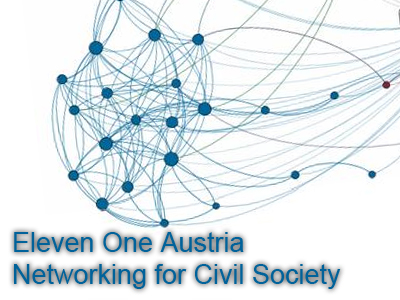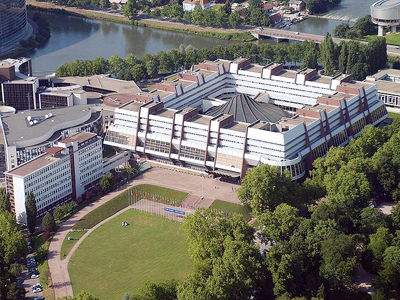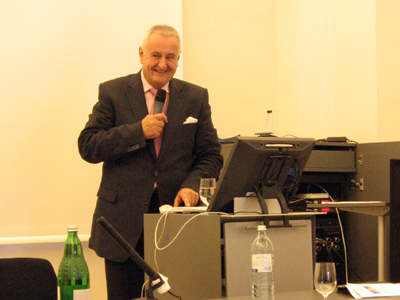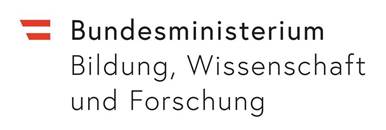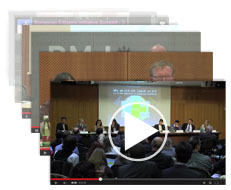Posts tagged ‘EU’
Visit the project website at ElevenOneAustria.eu!
The aim of the project Eleven One Austria is to conceptualize, develop and implement a pan-Austrian open access online platform for all official and other institutions as well as for all forms of organized civil society devoted to all areas of Union action for mutual exchange and exploitation of synergies. This would create a closed “European policy network” within which each participant has full knowledge of the activities of the other participants of the network.
The purpose of the Eleven One Austria network is to bring into live the long overdue Article 11 TEU para 1 to 3, i.e. the “horizontal and vertical European dialogue”. This adds to the public relations of Austria related to Europe and reduces Euroscepticism. An additional aspect of this network is to facilitate orientation for the competent European authorities when addressing questions to the institutions of civil society (e.g. Article 307 TFEU).
Participating partners include: Austrian Institute for European Law and Policy, University of Graz, University of Salzburg, State of Styria, State of Salzburg, Federal Chancellery of Austria.
Implementation
1. Test and adaption of FUTURIUM2 as an open technical platform and tool for policy making and dialogue
2. Dissemination of the tool to other interested clients in form of an open source, for open access
Outcome
The final outcome of the project Eleven One Austria is the first open access online tool for the Austrian civil society and their associations for a lively European discussion in the sense of collaborative and cooperative democracy. This will facilitate participation, co-design, co-planning, coediting as well as co-decision making. Austria will serve as a role model in the development of European Participatory Democracy that can be extended to other EU member states.
Visit the project website at ElevenOneAustria.eu!
Zur Projektseite mit Fotos der Veranstaltung
Am 10. und 11. Dezember 2014 präsentierte der Europäische Wirtschafts- und Sozialausschuss (EWSA) vor Jugendlichen an der Rechtswissenschaftlichen Fakultät der Universität Graz sein neues Pilotprojekt „My Europe…Tomorrow“, eine Online-Plattform, die mit der Unterstützung junger Menschen zukünftig den Europäischen Bürgerdialog fördern soll. Neben Spanien, Estland und Frankreich testen auch Jugendliche in Österreich die Plattform und sind aufgefordert, diese aktiv mitzugestalten, bevor der Startschuss von „My Europe…Tomorrow“ in ganz Europa fällt. Am Diskurs über die Wichtigkeit eines Europäischen zivilen Dialogs sowie über die technischen und inhaltlichen Anforderungen an die neue Online-Plattform beteiligten sich auch Österreich-Projektleiter Univ.-Prof. Dr. Johannes W. Pichler, die ehemalige Präsidentin des EWSA Dr. Anne-Marie Sigmund ebenso wie Vertreter von Wirtschafts- und Arbeiterkammer sowie Arbeitsmarktservice. Auch der amtierende EWSA Präsident Henri Malosse schaltete sich via Videokonferenz am gestrigen Veranstaltungstag zu und begrüßte das Engagement der österreichischen Jugendlichen bei der Entwicklung der Online-Plattform. Read more
With the project “My Europe… tomorrow“, we are working to improve the dialogue between European citizens and the EU. To this end, we are developing and testing new tools (both online and offline) to enable citizens to communicate their concerns and issues to the European lawmakers.
The main objective of the project is to implement a structured dialogue on European issues between citizens and the European Unions with the help of organised civil society. The dialogue should take place in the member states and be organized by organisations from the member states. The goal of the project is to define the expectations of European citizens regarding the European Union, primarily in order to provide answers to their concrete day-to-day problems but also in a wider institutional perspective. The project is supported by the European Economic and Social Committee, the Economic, Social and Environmental Council of France, the Economic and Social Council of Spain, the University of Graz, the Austrian Institute for European Law and Policy and the Estonian National Youth Council.
The pilot phase
In the first pilot phase, a structured dialogue shall be established on the issues of youth (un)employment and immigration in four pilot countries (Austria, Estonia, France, Spain). The dialogue will be carried out by using on-line and social media tool, on one hand, and traditional methods (seminars), on the other. The use of these two methods will allow a wider outreach, but will also mutually reinforce and integrate, notably as events will encourage and support the e-participation.
The online platform for the project was launched on 28th October 2014 and the first public event took place on 20th November in Madrid, Spain.
The second event was organized in Graz, Austria on 10-11th December on the issue of “Youth and working life” by the Austrian Institute for European Law and Policy in co-operation with the University of Graz.
This first pilot phase will be concluded by a major event/conference to be held in Brussels in spring 2015, which will give the opportunity to discuss the first results of the structured dialogue.
More information and video: Presentation of the project in Graz on 10 & 11 December 2014 [in German]
On our video page: Challenges and opportunities for the Civil Society Dialogue
Get the final report on the project here: Final Report on the Online Tool “MyEurope…Tomorrow!”
On May 5 and 6, the Austrian Institute for European Law and Policy will organise the yearly experts’ conference on European democracy, EUDEM.
Please register online here: http://www.bka.gv.at/site/7813/default.aspx
With the Treaty of Lisbon, the fundamental value of “democracy“ enshrined under Article 2 TEU has, at the level of the European Union, been given a renewed framework (Articles 9-12 TEU).
Dealing with the implications of this new legal framework is an interdisciplinary challenge not only for lawyers of different disciplines (International law, European law, national constitutional law), but also for political scientists, economists, EU decision makers and top executives, or eDemocracy- and eParticipation-related computer scientists. Additionally, input is needed not only from the academic sphere, but also from practitioners in governments, parliaments and other public institutions, at union as well as national and regional levels and selected stakeholders from civil society.
In order to help with the necessary discussion process, the Austrian Institute for European Law and Policy started to host a yearly EUDEM conference on European Democracy in 2012. This conference aims to bring together scientists from different fields from across Europe and the world and to enrich the Union´s democratization process and to act as an impartial entity supporting any party concerned with democracy issues in the Union, whether this is in institutions of the Union or citizen participation organizations as well.
The annual EUDEM conference is to be held along a rotation principle. EUDEM ´s office is located at the Austrian Institute for European Law and Policy.
.
.
Durch den Vertrag von Lissabon hat der europäische Grundwert der Demokratie (Artikel 2 EUV) einen ganz neuen rechtlichen Rahmen durch die weiteren Artikel 9-12 EUV erhalten.
Die Auswirkungen dieses neuen rechtlichen Rahmens auszuloten ist eine interdisziplinäre Herausforderung, nicht nur für Juristen aus dem internationalen, europäischen und Verfassungsrecht, sondern auch für Politikwissenschaftler, Öknonomen, Entscheidungsträger der EU und eDemocracy-Vertreter. Zudem ist Expertise nicht nur aus akademischen Kreisen sondern auch von Praktikern aus Regierungen, Parlamenten und anderen staatlichen Institutionen und NGOs auf europäischer, nationaler und regionaler Ebene notwendig.
Um den notwendigen Diskussionsprozess zu unterstützen, veranstaltet das Österreichische Institut für Europäische Rechtspolitik seit 2012 die jährliche EUDEM-Konferenz zu europäischer Demokratie. Diese Konferenz hat das Ziel, Spitzenforscher verschiedener Felder aus ganz Europa und der Welt zusammenzubringen, um den Demokratisierungsprozess der EU voranzutreiben, und alle Gruppen und Institutionen zu unterstützen, die die Demokratie in der Union fördern.
Die jährliche EUDEM-Konferenz soll in Zukunft nach dem Rotationsprinzip an unterschiedlichen Orten in Europa stattfinden. Das Koordinationsbüro für die EUDEM ist beim Österreichischen Institut für Europäische Rechtspolitik in Salzburg angesiedelt.
In co-operation with the Bureau of European Policy Advisors (BEPA) and the Austrian Federal Chancellery, we organised a high-level seminar on engaging civil society and improving the dialogue between European institutions and civil society organisations.
The seminar was held on Monday, 24th June 2013 at the seat of the European Commission in the Berlaymont building in Brussels.
Documents:
Update: You can watch the video recordings of the conference here:
.
Since April 2012, a new instrument – the European citizens’ initiative (ECI) – has put EU citizens in the driving seat as it has provided them with an opportunity to directly shape the political future of the EU. The introduction of the ECI was one of the biggest successes for the Austrian Institute for European Law and Policy.
However, as matters sometimes turn out quite differently in practice from what was expected by the drafters, we have also seen a lot of problems and challenges. The first initiatives experienced problems with the registration process, the online collection software provided by the European Commission and missing financial ressources for campaigning.
In the light of those experiences, we teamed up with ECAS to organise a series of conferences in Brussels, Paris, Barcelona and Vienna to evaluate the first practical experiences with ECIs and their impact and to bring together experts, campaigners, researchers and decision makers from across Europe. While the conferences in Paris and Barcelona looked at legal issues and campaigning techniques, the Vienna conference organised by the Austrian Institute for Law and Policy looked at the technical aspects.
Based on the input from ECI organisers, scientists, campaigning experts and other stakeholders, we proposed several improvements to the European Citizens’ Initiative right (see our report below).
The conference we organised in Vienna in October 2012 was a huge success, bringing together nearly 150 participants, including several MEPs and high-ranking European Commission officials, representatives from nearly all European Citizens’ Initiatives and a sizeable number of interested public participants.
You can take a look at the report on the conference here.
.
.
Seit April 2012 haben europäische Bürger dank der Europäischen Bürgerinitiative (ECI) die Möglichkeit, die Agenda der EU mitzubestimmen. Die Einführung der ECI war einer der größten Erfolge für das Österreichische Institut für Europäische Rechtspolitik.
In der Praxis sind aber die ersten Initiativen leider auf größere, unerwartete Hürden gestoßen. Die ersten Initiativen hatten etwa mit Problemen bei der Registrierung ihrer Kampagnen, mit dem Onlinesystem der Europäischen Kommission zur Unterschriftensammlung und mit schlechter finanzieller Ausstattung zu kämpfen.
Vor dem Hintergrund dieser Erfahrungen haben wir mit ECAS zusammen eine Serie von Konferenzen in Brüssel, Paris, Barcelona und Wien organisiert, um die ersten praktischen Erfahrungen mit ECIs und deren Erfolg zu evaluieren und um Experten, Campaigner, Forscher und Entscheider aus ganz Europa zusammenzubringen. Die Konferenzen in Paris und Barcelona diskutierten rechtliche Aspekte und Campaigning-Techniken, und die vom Österreichischen Institut für Europäische Rechtspolitik organisierte Konferenz in Wien betrachtete die technischen Aspekte.
Basierend auf dem Input von ECI-Organisatoren, Forschern, Campaigning-Experten und anderen Stakeholdern schlugen wir eine Reihe von Verbesserungen für das Bürgerinitiativen-Recht vor (siehe unseren Bericht unten).
Die von uns organisierte Konferenz in Wien im Oktober 2012 war ein großer Erfolg und brachte fast 150 Teilnehmer, darunter mehrere Europaabgeordnete und hochrangige EU-Beamte, Vertreter fast aller Bürgerinitiativen und eine große Zahl an Interessenten nach Wien.
Der Abschlussbericht der Konferenz ist hier verfügbar.
The Austrian Institute for European Law and Policy was one of the key stakeholders that made the innovative European Citizens’ Initiative (ECI) – the first ever transnational instrument of direct democracy – a reality. Since April 2012, European citizens can use the ECI to set the agenda of the EU. It allows one million European citizens to propose new or changed European law, just like direct democracy allows them to do on national or regional level.
Together with other NGOs and campaigns, we managed to make this right a part of the Treaty of Lisbon and successfully campaigned for the swift implementation of the European Citizens Initiative after the treaty came into force. We were able to implement several innovations to the regulation, including a simple registration procedure for initiatives and the ability to sign initiatives online.
Over the last five years, we organised yearly conferences that brought together key politicians, EU and national officials, leading experts on direct democracy and initiators and campaigners from across Europe to discuss the development of the Citizens’ Initiative and advise European institutions. We published six books with articles from leading experts in our publication series “Schriften zur Rechtspolitik”. The accummulated knowledge and contacts from this work make the Austrian Institute for European Law and Policy a leading expert in European Citizens’ Initiatives and European democracy in general.
Das Österreichische Institut für Europäische Rechtspolitik war eine der Schlüsselorganisationen bei der Realisierung der Europäischen Bürgerinitiative (ECI) – dem ersten grenzüberschreitenden Instrument direkter Demokratie. Seit April 2012 können europäische Bürger die ECI nutzen, um die Agenda der EU mitzubestimmen. Sie erlaubt einer Million europäischer Bürger, neue oder geänderte europäische Gesetze vorzuschlagen – ähnlich wie die direkte Demokratie auf nationaler oder regionaler Ebene dies ermöglicht.
Zusammen mit anderen NGOs und Kampagnen haben wir es geschafft, dieses Recht im Vertrag von Lissabon zu verankern und haben nach dem Inkrafttreten des Vertrags erfolgreich an der schnellen Umsetzung der Bürgerinitiative in anwendbares Recht gearbeitet. Wir waren in der Lage, eine Reihe von Innovationen bei der Umsetzung durchzusetzen, darunter ein vereinfachtes Registrierungsverfahren für Initiativen und die Möglichkeit, Initiativen online zu unterzeichnen.
Im Laufe der letzten fünf Jahre haben wir jährliche Konferenzen organisiert, die Schlüsselpersonen aus Politik, Wissenschaft und Verwaltung sowie Aktivisten und Initiatoren aus ganz Europa zusammengebracht haben, um die Entwicklung der Europäischen Bürgerinitiative zu diskutieren und die europäischen Institutionen zu beraten. Wir haben sechs Bücher mit Artikeln von führenden Experten in unserer Schriftenreihe “Schriften zur Rechtspolitik” veröffentlicht. Das gesammelte Wissen und die Kontakte aufgrund dieser Arbeit machen das Österreichische Institut für Europäische Rechtspolitik zum einer der führenden Anlaufstellen für Europäische Bürgerinitiativen und europäische Demokratie im allgemeinen.
In co-operation with CEPS and the Danube University Krems, we organised a series of high-level workshops, coupled with a study, on ways to improve the dialogue between European institutions, stakeholders and citizens. The research project sought to answer how affected stakeholders and interest groups can be better recognized and included in a constant and systematic dialogue with the EU. To answer those questions, we polled hundreds of different civil society groups and organised four workshops in Brussels in 2011 and 2012 with hundreds of participants.
External scientific input was provided by Piotr Maciej Kaczyński, Centre for European Policy Studies (Brussels), as well as by Dr. Klemens H. Fischer, Minister plenipotentiary at the Austrian Permanent Representation to the EU and adjunct Professor at the Institute for International and Foreign Politics at the University of Cologne, and Dr. Christine Leitner, Head of Center for European Public Administration (CEPA), Danube University, Krems.
The four workshops were organised on different subject areas and provided input by high-level professionals:
- 4th October 2011: Dialogue with the European Economic and Social Committee, with the Committee of Regions and Related Interest Groups
- 29th November 2011: Dialogue with Non-governmental and Religious / Philosophical Organisations
- 31st January 2012: Dialogue with non-organized Citizens
- 14th March 2012: Final Presentation
For more details and a list of speakers, please refer to the programme and for information on the methodology, please refer to the research notes.
In Zusammenarbeit mit dem CEPS und der Donau-Universität Krems organisierten wir eine Serie von high-level Workshops und eine Studie mit dem Ziel, den Dialog zwischen europäischen Institutionen, Stakeholdern und Bürgern zu verbessern. Ziel des Forschungsprojekts war es, Wege zu finden, wie Stakeholder und Interessengruppen besser erkannt und in einen konstanten und systematischen Dialog mit der EU eingebunden werden können. Um diese Fragen zu beantworte, befragten wir hunderte zivilgesellschaftliche Gruppen und organisierten 2011 und 2012 vier Workshops in Brüssel mit mehreren hundert Teilnehmern.
Wissenschaftlicher Input kam dabei unter anderem von Piotr Maciej Kaczyński, sowie von Dr. Klemens H. Fischer, Gesandter-Botschaftsrat bei der Ständigen Vertretung Österreichs bei der EU und Research Fellow am Institut für Internationale Politik und Außenpolitik der Universität zu Köln, und Dr. Christine Leitner, Leiterin des Center for European Public Administration (CEPA), Donau-Universität Krems.
Die vier Workshops behandelten unterschiedliche Themen und wurden von Referenten auf höchstem Niveau begleitet:
- 4. Oktober 2011: Dialog mit dem Wirtschafts- und Sozialausschuss der EU, mit dem Ausschuss der Regionen und Interessengruppen
- 29. November 2011: Dialog mit Non-governmental organisations und religiösen / pilosophischen Organisationen
- 31. Jänner 2012: Dialog mit nicht-organisierten Bürgern
- 14. März 2012: Abschlusspräsentation
Für weitere Details und eine Liste der Vortragenden, lesen Sie bitte das Programm und für Informationen zur Methodologie lesen Sie bitte die Research Notes.
From October 2010 to June 2011, we worked on a successful research project funded by the Austrian National Bank on “Video Campaigning on EU”.
Goal of the project: gathering and analysing all campaigns on the issue.
- What kind of marketing activities have been done by the EU to increase the acceptance of rights by the citizens?
- How does the EU portray itself, which issues were covered?
- How was the success measured? How was it evaluated?
- Which strategies can be expected to be successful in future?
Over the course of the project, we screened more than 65.000 clips, built a core data base of more than 350 online and TV advertisements on European issues and analysed their effectiveness – and how to increase this (sadly often very limited) effectiveness. In order to research this topic in more detail, we established a network of scientific institutions from all over Europe.
Von Oktober 2010 bis Juni 211 arbeiteten wir an einem erfolgreichen Forschungsprojekt im Auftrag der Österreichischen Nationalbank zum Thema “Video Campaigning on EU”.
Ziel des Projektes: Erfassung aller stattgefundenen Kampagnen in diesem Bereich und deren Analyse.
- Welche Marketing-Aktivitäten wurden durch die EU bisher gesetzt, um die (Rechts)Akzeptanz bei den Bürgern zu erhöhen?
- Wie stellt sich die EU dar, welche Themen wurden transportiert?
- Wie wurde der Erfolg gemessen? Gibt es Evaluierungen?
- Welche Strategien werden in Zukunft erfolgreich sein?
Im Verlauf des Projekts sichteten wir mehr als 65.000 Clips, bauten eine Kern-Datenbank von mehr als 350 Online- und TV-Werbungen zu europäischen Themen auf und analysierten deren Effektivität – und wie diese verbessert werden könnte. Um das Thema weiter zu erforschen bildeten wir ein Netzwerk mit Forschungsinstituten aus ganz Europa. Die Kurzversion des Abschlussberichts können Sie hier herunterladen (PDF).

